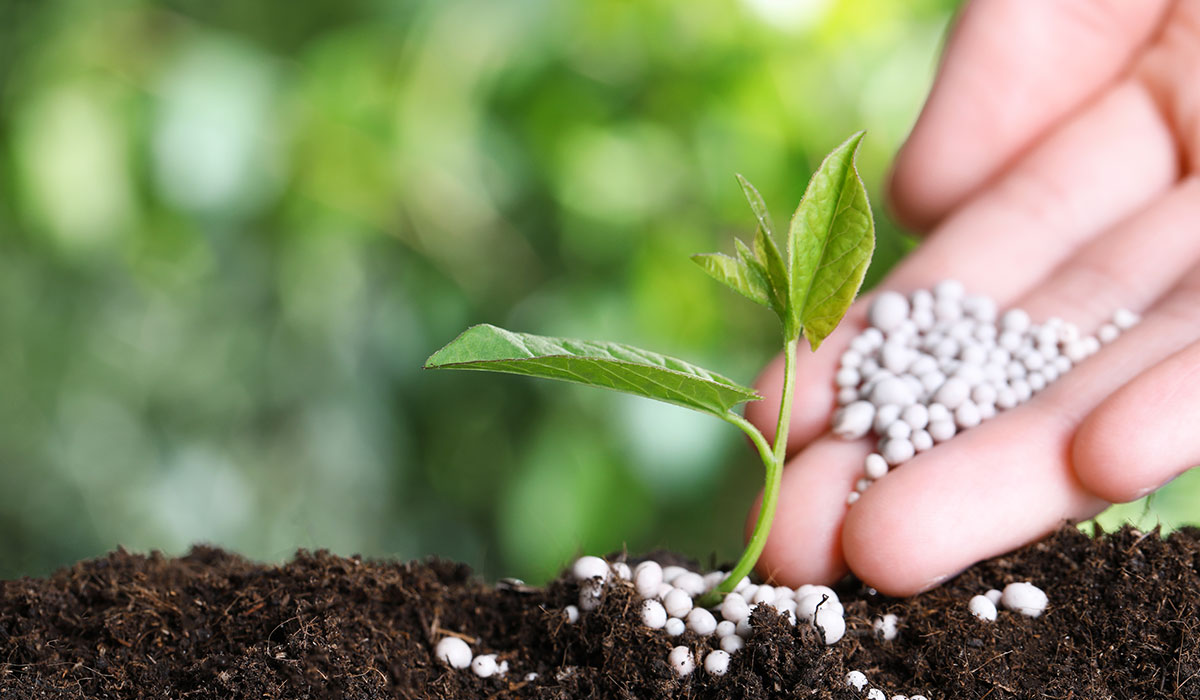Tackling climate change and reducing fertilizer use in agriculture

By George George Idowu
Climate change presents a multifaceted challenge to farmers worldwide, including those in Nigeria. They face rising temperatures, extreme weather events, and the need to reduce the use of chemical fertilizers, which have been a mainstay in modern agriculture.
Nitrogen-based fertilizers, while essential for providing crop nutrients, significantly contribute to greenhouse gas emissions and environmental damage due to runoff into waterways.
To address these challenges, scientists at the University of Tokyo (UTokyo) in Japan are exploring the genomes of wild plant strains. Their goal is to develop crops that can thrive in nutrient-poor soils without heavy reliance on fertilizers.
“We’re using genomics, modeling, and statistics to find important genes from these naturally robust plants that could lead to improved crops,” explains Toru Fujiwara, a professor from UTokyo’s Graduate School of Agricultural and Life Sciences.
Wild plant strains often survive in harsh environments with intense competition for resources, making them more tolerant to environmental stressors than cultivated species.
However, cultivated species have been bred for desirable physical characteristics in terms of food production. Cross-breeding these strains could lead to crops that are both productive and resilient.
In 2022, Fujiwara and his team published a study on a hybrid rice strain, KRIL37, which performs well in low-nitrogen conditions. This strain, derived from Japan’s common Koshihikari rice, incorporates genes from wild red rice (Oryza rufipogon). Although wild red rice is considered a noxious weed in the United States, its hardiness makes it a prime candidate for genetic exploration.
KRIL37 was initially bred to enhance resistance to rice blast fungus, but Fujiwara’s analysis revealed that it also excels in nitrogen absorption. In low-nitrogen conditions, KRIL37 produced over three times the biomass of standard Koshihikari. Field tests also showed improved development, although results varied across different environments.
Similarly, Fujiwara’s colleague, Takeshi Izawa, is also making strides in improving Koshihikari crops. In a 2023 study, Izawa’s team analyzed the transcriptomes of Koshihikari rice leaves under varying fertilizer conditions, identifying over 100 genes responsive to fertilizers
They focused on genes Os1900 and Os5100, which regulate grain-bearing side and shoot growth under different fertilizer levels. By modifying Os1900, they created rice plants with robust branch development even in low-nitrogen conditions. This mutation shows great potential and awaits field testing pending government approval.
Rapid translation of crop research is feasible in Japan and the United States, but regions like the European Union face strong opposition to genetically modified organisms (GMOs). Concerns about GMOs include potential gene transfer to wild plants, reduced biodiversity, and impacts on other species.
However, Japan’s government has recently allowed the planting of gene-edited crops without lengthy safety or environmental assessments, provided the plants do not contain foreign DNA.
Yusaku Uga, a group leader at the National Agriculture and Food Research Organization (NARO) in Tsukuba, Japan, is developing a cyber-physical crop technology to streamline the design of hardier crops.
This technology uses data on gene expression, plant shape, yield, and environmental factors to predict how genes will express and perform under stress. Such innovations aim to reduce fertilizer dependence and enhance crop resilience.
One cross-institutional group in Japan has identified a method to measure mild drought stress in plants more accurately. This method involves monitoring the phosphate starvation response, triggered by reduced inorganic phosphate levels during mild drought.
Traditional methods, like soil moisture measurement or plant surface temperature analysis, often require complex assessments. Understanding drought resistance through these new techniques is crucial for designing better crops.
The agricultural innovations emerging from UTokyo and NARO offer promising solutions to the challenges posed by climate change and fertilizer dependency. By leveraging genomics and advanced crop design technologies, researchers aim to develop resilient, nutrient-efficient crops.
These advancements hold significant potential not only for Japan but also for countries like Nigeria, where sustainable agricultural practices are essential for environmental health and food security.
